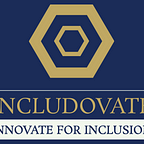Feminist Series — They Named Me Ramya
They named me Ramya…
My parents named me Ramya, 45 years back, when I was born on an early Saturday evening. My friends and colleagues know me as somebody who is hard-working, loyal, and reliable.
One of my areas of interest and strength has always been Project Management as well as project monitoring and evaluation. This interest led me to join Includovate in December 2021 as a Program Manager. It has been a very enriching experience the last few months, with a lot of learning, collaborations, as well as planning. The challenges keep me motivated to learn further.
I completed a Master’s degree in Marine Affairs, focusing on policy changes for inclusive conservation measures. It has been my passion to ensure that inclusive models of conservation are developed into policies that take into account gender-justice and equity issues, especially focusing on small-scale fish workers in low-income countries. Though my educational background may seem very different from what I am working on to outsiders, to me, I draw parallels between organisations that fight for the rights of persons with disabilities and fish worker organisations who focus on advocacy rights as well as basic human rights (often assumed to be equal for all). Marginalised people exist in all sectors, more so within developing countries or what is often referred to as the Global South.
It has always been important to me that equity and equality be given priority, not just in policy but in day-to-day life as well. Equality is something that is rare, even in cultures that seem to look very advanced. During one of my trips to a fishing community on the east coast of the United States, I realised that women had no voice in basic decisions such as where to sell their catch or in deciding on insurance options for fishing vessels. They were silent contributors within the system and were rarely given space to voice their ideas. To me, this was very similar to the situation in the Gulf of Mannar (in southern India) where women seaweed collectors were non-speaking spectators in every discussion regarding conservation. It is very frustrating to see that even after so many years, women’s voices are not heard freely. But I also noticed that in the Gulf of Mannar, there were women who were ready to go out and fight for their rights to be recognised, and demand better prices and better working conditions. Nothing stopped them. Barriers did not matter! This was encouraging and so heartening to see that they were ready to bring about change.
Nelson Mandela said, “to deny people their human rights is to deny their humanity.” The fact that human rights include cultural, social, economic, civil, and political rights are often not recognised in low-income countries. Twenty years back, I wanted to join the United Nations to work in marine conservation. However, today, it is important for me to work at the grassroots local level. After years of lobbying and advocacy, I realised that it is far easier to get the language in policies correct than it is to get them implemented at the local level.
This knowledge led me to start educating communities on their legal rights as well as train them on how to demand those rights, empowering them. After almost ten years of working with women seaweed collectors, it was so heartening to learn that those same women collectors who were mute in 2006 had formed their own organisation to advocate for their rights.
My interest in monitoring changes in the field led me to further explore monitoring and evaluation techniques as well as project management. I began to work with communities as well as organisations spread across the Global South and international organisations. The challenge to work across cultures, across time zones, across different traditional systems, and trying to facilitate better research led me to move towards program management, giving me the satisfaction of still being part of a research team, while at the same time also using my coordinating skills. Includovate’s nodes (research streams) especially on Inclusive Justice, Inclusive Evaluation, and Inclusive Ecosystems made me realise the need to integrate various thematic issues within human rights issues. Through my role at Includovate, I am hoping that I will learn more inclusive practices and better ways to promote equality amongst all.
About the Author
Ramya Rajagopalan, a Program Manager at Includovate, currently focuses on projects related to persons with disabilities. Her interests range from human rights, feminism, common-pool resources, inclusive governance, and resource management. Her passion for marine ecosystems has led her to focus on marine governance and conservation, and over the past 18 years, project management, empowering fishing communities, advocacy and lobbying.
Includovate is a feminist research incubator that “walks the talk”. Includovate is an Australian social enterprise consisting of a consulting firm and research incubator that designs solutions for gender equality and social inclusion. Its mission is to incubate transformative and inclusive solutions for measuring, studying, and changing discriminatory norms that lead to poverty, inequality, and injustice. To know more about us at Includovate, follow our social media: @includovate, LinkedIn, Facebook, Instagram.
